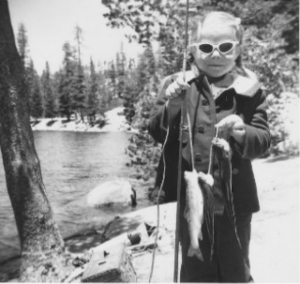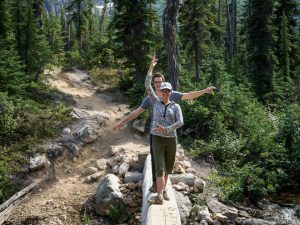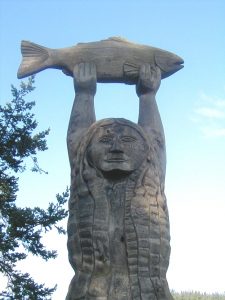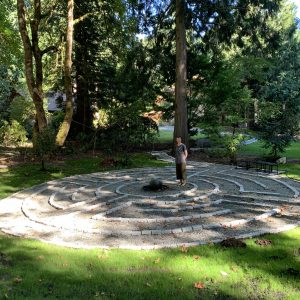 The Columbia City Yoga on-line Moving into Meditation class met this morning. We reflected on memories, how we create them, store them and retrieve them. Our mindful awareness enables us to witness how memories change and how we are changed by them. Mindful awareness can help us to live in the present moment, truly the only moment we have. Learning difficult and wondrous truths about mind and memory evokes compassion.
The Columbia City Yoga on-line Moving into Meditation class met this morning. We reflected on memories, how we create them, store them and retrieve them. Our mindful awareness enables us to witness how memories change and how we are changed by them. Mindful awareness can help us to live in the present moment, truly the only moment we have. Learning difficult and wondrous truths about mind and memory evokes compassion.
May we remember life’s impermanence and extend compassion to ourselves and others.
We heard Jane Hirshfield’s poem When Your Life Looks Back. The poem is an invitation to enter life more fully, moment by moment. It’s about the fragility or our shared human condition. In her wonderful interview with Lion’s Roar writer Noelle Oxenhandler, Jane comments:
Who is the “I” of this poem? It is all of us, called to the thresholds of our own lives, invited to go on through whatever sorrows and difficulties we may encounter, and to make our home in the happiness that can come to us only when—realizing how far we extend beyond our own skins –
Welcome. Thank you for being here. We continue to witness terrible conflict and suffering in many places in the world today. It seems like many of these conflicts revolve around history and memory: events people lived through that live on in their hearts and minds.
I’ve been thinking about how memory works and how it can bring us joy and great suffering.
I’ve been studying how mindfulness plays a part in memory. Neuroscientist Lisa Genova explains that the first necessary step in creating a memory is attention. When we focus sustained attention on something the brain begins to consolidate and encode all the sights, sounds, smells, tastes, information of what we experience. It connects them into a pattern of associative connections. Our brain physically changes with experience.
What we pay attention to is what we’ll remember. We pay attention to things that are new and surprising. We pay attention to things that are emotional and meaningful. These are also the moments, the information, that we’ll return to and repeat.
I wonder what happens when we repeatedly retrieve our memories?
Memories are stored in a web of associations in our brains, whenever we encounter something new, our interpretation of it is filtered by what we already know. So memories of the past are constantly influencing our perceptions and actions in the present. The web of associations is dynamic – it changes with experience and so does memory. Learning this has made me wary of relying on my memories or clinging to them too much.
 Memory and identity are closely connected. Memory plays a role in creating our perception of self, our sense of personal continuity. I am frequently humbled by the constellation of what goes into forming identity. This whole process makes me think about the many ways memory is a blessing and also a burden. We rehearse joyful and painful events from our past. We repeat stories about our identities.
Memory and identity are closely connected. Memory plays a role in creating our perception of self, our sense of personal continuity. I am frequently humbled by the constellation of what goes into forming identity. This whole process makes me think about the many ways memory is a blessing and also a burden. We rehearse joyful and painful events from our past. We repeat stories about our identities.
Over time these memories and stories are subtly changing. Eventually they fade or we lose them, which is also a source of great suffering.
The present moment is really the only moment we actually have. Mindfulness helps us to move out of our imaginings and memories into the present moment. In the process of paying attention, we can become aware of the habits of mind that we have developed over our lifetime. Many of these habits don’t serve us well — judgments, doubts, or self-critical thoughts.
We can become aware of what is going on and learn to shift our attention towards thoughts and actions that are wiser and more compassionate.
Jane Hirshfield’s poem, When Your Life Looks Back, describes the present moments we have and the choice we have to enter them:
When your life looks back—
As it will, at itself, at you—what will it say?
Inch of colored ribbon cut from the spool.
Flame curl, blue-consuming the log it flares from.
Bay leaf. Oak leaf. Cricket. One among many.
 Your life will carry you as it did always,
Your life will carry you as it did always,
With ten fingers and both palms,
With horizontal ribs and upright spine,
With its filling and emptying heart,
That wanted only your own heart, emptying, filled, in return.
You gave it. What else could you do?
Immersed in air or in water.
Immersed in hunger or anger.
Curious even when bored.
Longing even when running away.
“What will happen next?”—
the question hinged in your knees, your ankles,
in the in-breaths even of weeping.
Strongest of magnets, the future impartial drew you in.
Whatever direction you turned toward was face to face.
No back of the world existed,
No unseen corner, no test. No other earth to prepare for.
This, your life had said, its only pronoun.
Here, your life had said, its only house.
Let, your life had said, its only order.
And did you have a choice in this? You did—
Sleeping and waking,
the horses around you, the mountains around you,
The buildings with their tall, hydraulic shafts.
Those of your own kind around you—
A few times, you stood on your head.
A few times, you chose not to be frightened.
A few times, you held another beyond any measure.
A few times, you found yourself held beyond any measure.
Mortal, your life will say,
As if tasting something delicious, as if in envy.
Your immortal life will say this, as it is leaving.
 “This, your life [says], Here, your life [says]. Let, your life [says].” And we have a choice in this. Now, even as we feel the “strongest of magnets, the future impartial [drawing us] in,” we are making that choice to be in the present moment. We can know that our . . . “life will carry us as it did always, with ten fingers and both palms, with horizontal ribs and upright spine, with its filling and emptying heart, that wanted only your own heart, emptying, filled, in return.” We are being carried by Life, a life energy which we all share. At the deepest level our bodies are always trying to keep us alive. They deserve our tender attention.
“This, your life [says], Here, your life [says]. Let, your life [says].” And we have a choice in this. Now, even as we feel the “strongest of magnets, the future impartial [drawing us] in,” we are making that choice to be in the present moment. We can know that our . . . “life will carry us as it did always, with ten fingers and both palms, with horizontal ribs and upright spine, with its filling and emptying heart, that wanted only your own heart, emptying, filled, in return.” We are being carried by Life, a life energy which we all share. At the deepest level our bodies are always trying to keep us alive. They deserve our tender attention.
We can begin with this moment. And then this one. As we meditate become aware of the many expressions of mind that arise. Perhaps we can discern their nature and then let them go. If you like you can imagine two baskets one on each side of you. As you notice ideas, imaginings, impulses arise, whatever surfaces in awareness, discern whether this arising is beneficial or not beneficial, healthy or not healthy, easeful or stressful. If it’s healthy or has a rightness to it, put it in one basket. If it’s unhealthy or if it feels like it stresses you or diminishes you with criticism or judgment put that in the other basket. Let these awarenesses be carried, let them be held by the baskets. Gradually you might sense which basket is most full. Know that these too can be carried by that great Life energy of which we’re all a part.
 As we enter the practice you might notice your breathing and your body sensations. You might notice your reaction or response to these many words of instruction. Does the instruction feel healthy or inspiring in some way? Do you feel contracted around it, disappointed, frustrated or judging? All are human, all belong. Put them in a basket and let them carried.
As we enter the practice you might notice your breathing and your body sensations. You might notice your reaction or response to these many words of instruction. Does the instruction feel healthy or inspiring in some way? Do you feel contracted around it, disappointed, frustrated or judging? All are human, all belong. Put them in a basket and let them carried.
You can feel your breathing and as you notice what you’re thinking, what you’re wanting, not wanting, what you’re intending or remembering. Notice how you’re reacting to what surfaces in this moment. Put it in a basket. Let go of any pursuit of what may be beneficial. Let go of any involvement with what may be difficult. Allow things to unfold as they will. Placing what surfaces in one basket or an other letting them be.
You might notice how you are as you sit here in stillness. Does it allow you to open? Is it burdensome or does it enhance your well being? This can be so subtle. Wants might whisper. There may be an impulse to push aversions away. You can just let them be. There is nothing to do only a letting go as awareness becomes available for the next moment.
If placing in baskets is difficult you can quietly identify each arising with words like beneficial, not beneficial. Or simply let them be.
 We are carried by life in this sensitive body and mind. Always picking up when we’re doing something wholesome or not wholesome. We can tune into these responses and notice when our attitudes, motivations and thoughts may be harmful in the subtlest of ways. They may be expressions of a deeper need for healing. We can notice when our feelings and thoughts inspire us, open us, engage us.
We are carried by life in this sensitive body and mind. Always picking up when we’re doing something wholesome or not wholesome. We can tune into these responses and notice when our attitudes, motivations and thoughts may be harmful in the subtlest of ways. They may be expressions of a deeper need for healing. We can notice when our feelings and thoughts inspire us, open us, engage us.
As we discern the nature and quality of our expressions of being we can sense how to be present in a way that leads to freedom.
We can reflect on our shared human condition and let our vulnerabilities inspire caring and compassion. We can aspire to support the well being and happiness of others. We can recognize our shared needs for connection, happiness, safety and peace. We have all entered the world and we will all be departing this world. Does that not evoke compassion?
Mortal, your life will say,
As if tasting something delicious, as if in envy.
Your immortal life will say this, as it is leaving.

